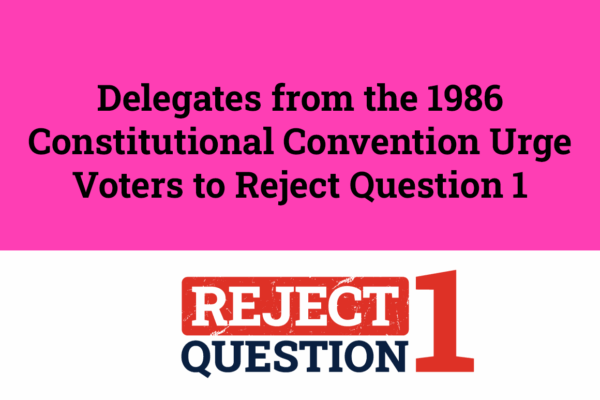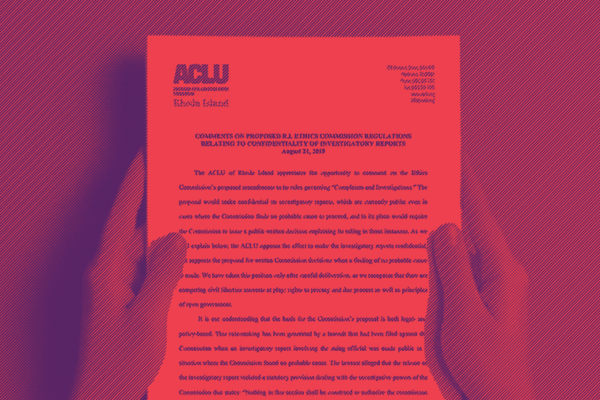RI Constitutional Convention? Reject Question 1
UPDATE: This ballot Question was defeated! About 63% of voters rejected a constitutional convention.
In November, voters will be asked whether or not the State should hold a constitutional convention. We urge you to reject Question 1 in November by voting "no" to the calling of a convention, which could be disastrous for Rhode Islanders' rights and liberties.
Explore the questions below to learn more about Question 1, and what a constitutional convention could really mean for Rhode Island. You can download a conversation guide, social media posts, and a half-page info sheet to share with friends and family at the bottom of the page.
Share the graphics on Instagram, Facebook, or Threads to share why you're voting to reject Question 1! To post the graphic yourself, click or tap on the image below, save to your device, then post on social media. (Image will open in new tab. On desktop, right click the image to "save as"; tap and hold on a smartphone to "save to photos.")
Use the right arrow below to see our new conversation guide! Click or tap to download.
Documents
- Conversation Guide.pdf
- 24 Facts Supporters of Question 1 Don't Want You to Think About.pdf
- Half-Page Info Sheet – Constitutional Convention.pdf
- Testimony – Constitutional Convention Preparatory Commission.pdf
- share on social media – protect LGBTQ+ rights.png
- share on social media – protect workers' rights.png
- share on social media – protect reproductive rights.png
- share on social media – protect voting rights.png
- share on social media – protect our state constitution.png
- share on social media – protect immigrants' rights.png
Related Content
Rhode Island Voters Reject Question 1

We Know What a Constitutional Convention Is Like – It’s Why We Oppose Question 1


